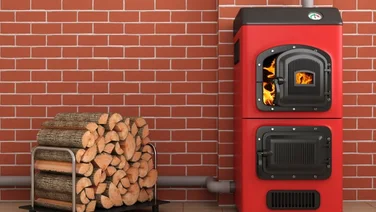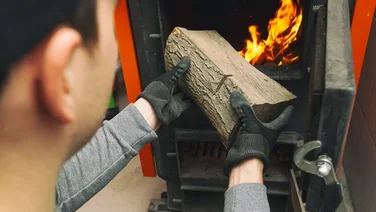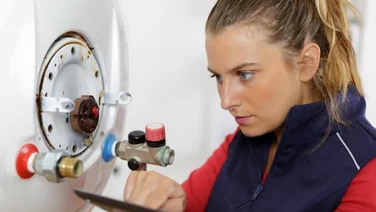We receive a small fee from trusted installers when you request a quote through our site. This helps us keep our content independent, well-researched and up to date – Learn more
✔ On average, boilers tend to last up to 15 years
✔ Colder weather causes several boiler issues
✔ Fill in the form above to get free boiler quotes from trusted installersDo you find yourself staring at the thermometer night after night, impatiently waiting for the house to heat up? This can be a tiresome routine, particularly as the days grow colder.
Many UK households forget that their boiler is key to living comfortably throughout the winter. And although some people are investing in energy-efficient boilers, they still tend to neglect them over time – in fact, there are currently around 4 million ‘zombie boilers’ in the UK (Heating and Hot Water Council Industry, 2020). If you have a zombie boiler, it’s time to consider the cost of a new boiler.
Neglecting your boiler can lead to other problems, and shorten its lifespan considerably. In this article, we’ll go over how long different boilers should last, and share our top tips on how to improve your boiler’s longevity.
If you’re from a household that knows its boiler isn’t up to scratch, you can skip the reading and head straight to our details form. Once you’ve filled this out, our professional installers will be in touch with a free quote to have your boiler replaced.

How long does a boiler last?
Like our fellow humans, each boiler is different in its own special way – which makes it difficult to estimate how long your exact boiler will last. This could all depend on the type of boiler you choose, your location, how well you look after it… the list goes on.
On average, boilers tend to last up to 15 years. So if your boiler is approaching the big one-five, then it’s best to start saving for a new one.
Of course, boilers are unpredictable things, and you could encounter the odd hiccup along the way which might reduce its lifespan. To avoid this, make sure you get an annual boiler service to keep on top of any issues.
If you need a new boiler, our guide on how much a new boiler costs has everything you’ll need to know about what you might spend.
Different types of boiler
The lifespan of your boiler will depend on how well you look after it. But will the type of boiler you opt for also have an effect?
Well, according to the Buildings Services Research and Information Association (BSRIA), the answer is yes. A BSRIA report states that gas boilers should last for 13 years, whereas oil boilers should last for 15. For those of you that are more eco-minded, it might be worth weighing up your options: do you want a solution that’s a little more eco-friendly? Or would you benefit more from a longer lasting boiler?
Although oil boilers can last around two years longer, they might not be as widely available in the future. Oil is a fossil fuel, which released a magnitude of carbon dioxide into the atmosphere. It’s estimated that 14% of UK greenhouse gases come from our homes — and if we all had oil boilers, this number will only go up. Indeed, the government is planning to phase out high-carbon fossil fuel heating systems – such as oil boilers – during the 2020s.
Best brand for boiler lifespan
As for brands of boilers, there isn’t such a big difference in how long they last. However, one way that different brands can support you and your boiler is by providing warranty.
You may not be able to control when your boiler goes kaput, but this doesn’t mean you should live in fear of having to fork out thousands out of the blue. This is where warranty comes in.
Boiler warranty is a type of insurance on your boiler that covers the costs of certain repairs and replacements. What you’ll be insured on all depends on the boiler model you choose, and the company you decide to go for.
To help you get a clearer picture of what you can expect, we’ve collated warranties from our four most highly rated best boiler providers. We’ve included each company’s top standard warranty offer – if these are shorter than you were expecting, you can also check out whether the company has any extended warranty options that suit your needs.
| Company | Boiler model | Standard warranty |
| Viessmann |
|
5 years |
| Worcester Bosch* |
|
Gas – 7 years Oil – 5 years |
| Vaillant |
|
7 years |
| Baxi |
|
10 years |
*10 year guarantee to customers who choose a local Worcester Bosch Accredited Installer to install their boilers along with a Worcester Bosch Greenstar system filter.
So, if you choose you brand wisely, you can enjoy up to ten years of worry-free warmth.
Are boilers affected by climate?
Here in Britain, we don’t tend to have to either sweltering summers or snow-filled winters. But the weather can still have an effect on your hardworking boiler.
If you live in a colder area of the UK, your boiler will have to put some elbow grease into even the smallest of tasks. The colder weather can also cause a number of issues with your boiler that might lead to broken parts. Over time, you could be left with a decrepit box, trundling along through the winter until it eventually packs in.
And those in warmer areas aren’t out of the woods, either. It’s not just cold weather that can affect the lifespan of your boiler; apparently, rain can also affect it too – and we all know Britain isn’t short of rain. According to Worcester Bosch, heavy bursts of rain can strain a house’s drainage system, which can lead to water backfilling into the internal pipework.
However, there are a few things you can do to give your boiler a helping hand – especially in these guelling winter months!
Top 8 tips to increase your boiler’s life expectancy
As you might have noticed, boilers can be a little on the expensive side. This is why it’s important to take care of it every step of the way — whether old or new.
If you follow our best ways to increase your boiler’s life expectancy, you won’t have to worry about dipping into your savings to replace it any time soon.
1. Annual service checks
A service check is essentially an MOT for your boiler. The engineer will inspect your boiler and its controls to make sure they’re working properly. They’ll then carry out a few checks for corrosion, leaks, and any unsafe fumes, to ensure the gas pressure is correct.
2. Check for any warning signs
There are a number of warning signs that you should watch out for regarding your boiler, which vary on the spectrum of severity. One of the less dangerous warning signs is a rise in your energy bills, which usually means your boiler’s efficiency is decreasing. On the more serious side, if your boiler starts to give off an unpleasant smell, this may be a sign of a potential gas leak. Head over to our boiler replacement page to learn more about how to tell if your boiler needs replacing.
3. Bleed your radiators
This doesn’t need to be done routinely – around once a year is probably enough. Why is it important? Well, sometimes air can get trapped in our radiators, which can lead to an inefficient boiler. Bleeding your radiators regularly will release the air and help your heating system run smoothly.
You don’t need to call out an engineer for this – instead, you can do it yourself in a few simple steps.
4. Under pressure
If your boiler seems like it’s just not working like it used to, don’t call out the engineer right away – first of all, you should check the water pressure. Low water pressure is one of the most common problems with boilers, and is something that can be fixed in a matter of moments.
A boiler’s gauge should always be between 1 and 1.5. To make sure your boiler’s pressure is in the right range, check your boiler manual for instructions. If you have a gas boiler, and you’re unsure of how to change the pressure, call out a Gas Safe Engineer rather than risking it yourself.
5. Summer heating
We know, this will be the last thing you want to do in the sweltering heat, but you’ll thank yourself the following winter.
By putting your heating on every now and then for about 10 minutes in the summer, this will reduce the likelihood of your boiler breaking down in the winter. Think of it like exercise: if you don’t work out for months and pick it up again without stretching, you’re asking for an injury.
6. Install a magnetic filter
Over time, your central heating system will accumulate sludge. This sludge is made from rust particles that have corroded and come away from the inside of pipes or radiators. A magnetic filter works by attracting these particles, then filtering them out of the system, thus preventing any blockages.
7. Add an inhibitor
Speaking of corrosion and sludge – wouldn’t it be great if there were a way to reduce this? Luckily for you, all you have to do is add inhibitor solution into the system.
This chemical will eliminate any corrosion problem your boiler has. Although this is a quick win, don’t rush in with this solution – it’s best to call out an engineer to do this for you, as they’ll be familiar with how to deal with the chemical safely.
8. Powerflush the system
Need one more way to get rid of all that sickly sludge? Better safe than sorry! A powerflush does the same job as an inhibitor by removing any unwanted sludge from your central heating system. Similar to the inhibitor, we recommend getting an engineer to carry out this task.
What now?
So what’s the moral of the story? Look after your boiler, and it will reward you with roughly 15 years of gloriously cosy warmth in your home. If your boiler is approaching 10-15 years old and is not the boiler it used to be, it’s time to get a replacement.
If this all sounds a bit too familiar, pop your details on our short form and our professional installers will be in touch with free boiler quotes.








